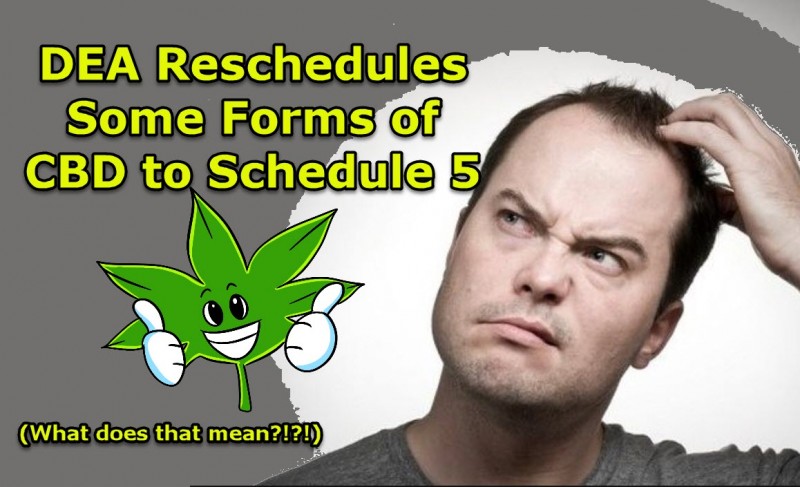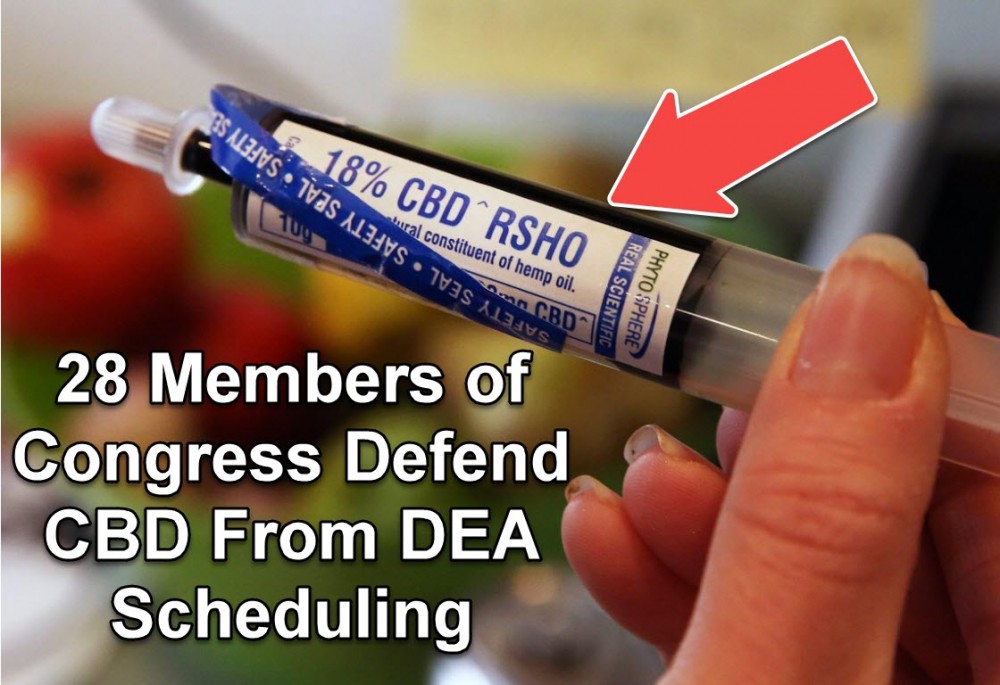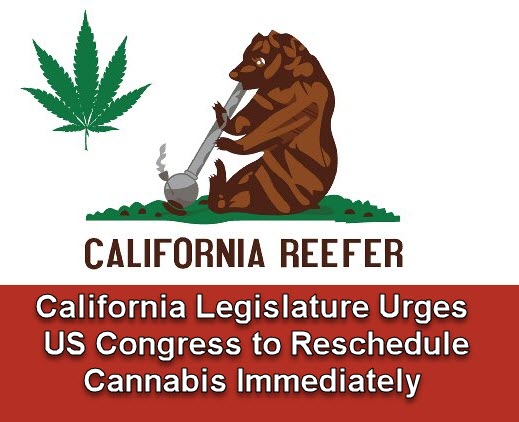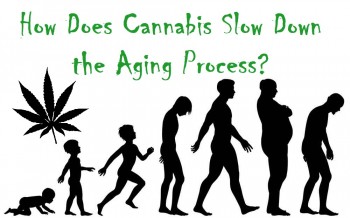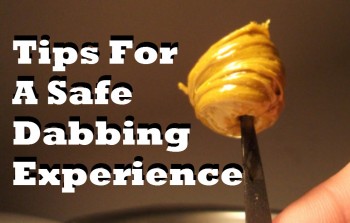DEA Reschedules Some Forms of CBD to Schedule 5 (What the #$%@ Does That Mean??)
The DEA Reschedules Some Forms of CBD to Schedule 5, So What Does That Mean? from CannabisNet on Vimeo.
So the US Drug Enforcement Administration (DEA) just rescheduled cannabidiol (CBD) – it’s no longer listed as a Schedule 1 substance, a category reserved for some of the most harmful and addictive substances known to man with no therapeutic value such as heroin.
But it’s now considered a Schedule 5 drug. What does that even mean?!
Just this Thursday, DEA announced that medications containing “finished dosage formulations” of CBD, and with THC levels below 0.1%, are listed as a Schedule 1 drug provided that the medicines have already received approval from the agency. This is the first time in history that the DEA has rescheduled cannabis in any form past its ludicrous Schedule 1 category.
However, there’s something fishy here: DEA’s momentous decision seems to have been timed just after the Food and Drug Administration (FDA) approved Epidiolex, a pharmaceutical medication derived from CBD for the treatment of rare forms of epilepsy. Without the green light from the DEA, doctors wouldn’t be able to prescribe Epidiolex to patients because technically, it would still fall under the Schedule 1 category. Additionally, the new schedule for CBD means that Epidiolex will be sold through pharmaceutical channels, which follows the traditional process from doctor’s prescription to the pharmacy. It won’t be distributed via cannabis dispensary or a cannabis caregiver.
According to the DEA, the new schedule would apply to “FDA-approved drugs that contain CBD derived from cannabis and no more than 0.1 percent tetrahydrocannabinols”, which means that even if Epidiolex is currently the only medicine in the market that meets this definition, this could affect other types of CBD products in the market later on. Furthermore, it doesn’t mean that it’s now legal to manufacture CBD within the USA. The DEA says that “the bulk cannabis material used to make the Epidiolex formulation (as opposed to the FDA-approved drug in finished dosage form) will remain in schedule 1.”
Are the DEA and FDA in cahoots with Big Pharma GW Pharmaceuticals, the UK-based company that is manufacturing Epidiolex and selling them for a reported $32,500 per year?
Although this move was applauded by some in the cannabis industry, there isn’t really much good going on here. Not all cannabis companies, especially the small ones, have the cash to pay for FDA approval.
Unfortunately, such a move may only benefit Big Pharma in the end, because it gives them more leeway to monopolize the MMJ industry. The only real solution, one that we could all be satisfied with, is when cannabis as a whole is rescheduled – in other words, decriminalize the drug completely.
On the bright side, the DEA’s decision may hopefully remove obstacles to medical research on CBD far beyond its benefits for epilepsy.
DEA Announcement Sends GW Pharma Stock Soaring to Record High – SMELLS LIKE MONEY
Right after DEA made its announcement, GW Pharmaceuticals shares soared to a record high of 8.3% during the afternoon trade, while volumes jumped to 1.9 million shares which is around 4x as much as the full-day average.
According to Stifel Nicolaus analyst Paul Matteis, he expected Epidiolex to be classified as a Schedule 4 substance, along the likes of Xanax and Valium. “We continue to recommend the stock on the basis that we believe the Epidiolex launch can exceed first-year expectations,” reports Marketwatch.com.
It seems that GW Pharma is reeking of money. The US Patent and Trademark Office has enabled GW Pharma to own 8 patents on top of 22 pending patents for treating conditions such as epilepsy, constipation, cancer, nausea, and general pain. They also own the patents to various extraction processes, hybrid cannabis strains, and proprietary uses.
At the end of the day, how is it possible that pharmaceutical Epidiolex is better than whole plant cannabis? Who really knows what goes into it? The medicine is already adulterated by removing some THC, and it comes with side effects while cannabis doesn’t!
WTF Does Schedule 5 Mean Anyway?
Schedule 5 drugs require prescriptions, without which it’s still considered illegal. The DEA scheduling definitions say that drugs listed as a Schedule 5 substance have low addiction risks and usually apply to pain killers, antitussive, antidiarrheal medicines. Examples of other drugs in this category include Robitussin with codeine, and Lyrica.
The DEA Reschedules Some Forms of CBD to Schedule 5, So What Does That Mean? from CannabisNet on Vimeo.
OTHER STORIES YOU MAY ENJOY...
CONGRESS SUES THE DEA TO RESCHEDULE CBD, CLICK HERE.

